The Internet has done innumerable wonders by democratizing our world, making people, ideas and things accessible to anyone, located even in the remotest parts of the world, at any given time. If one has talent, chances to go unnoticed on the web are very low. This level of access was unimaginable a few decades back. Since then, we have certainly come a long way. Along this journey of creating a hyperconnected world, have we compromised on some things? Have we gotten ourselves a little too hooked on our devices that we are now finding it hard to live without, even if it’s just for a few hours? Are our minds really capable of assimilating the amount of information that we come across every day? Is it now possible to spend time quietly without getting distracted by the sound of constant notifications? In this article, we will explore how our society has now become dependent on technology and shares tips on digital wellbeing and how we can more mindful with technology.
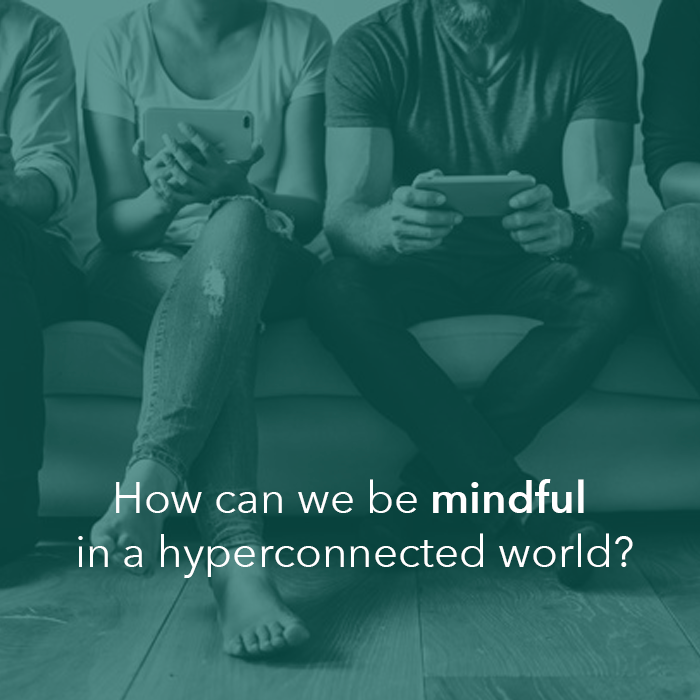
How much time are we really spending online?
We now spend more than 6.5 hours online on an average every day with more than 2.5 hours of those on social media. That’s roughly half of our waking life spent on the world wide web! And this time is increasing every year. This was probably the reason the inventors of the internet called it the ‘web’- it’s not that easy to get out once you’re in!
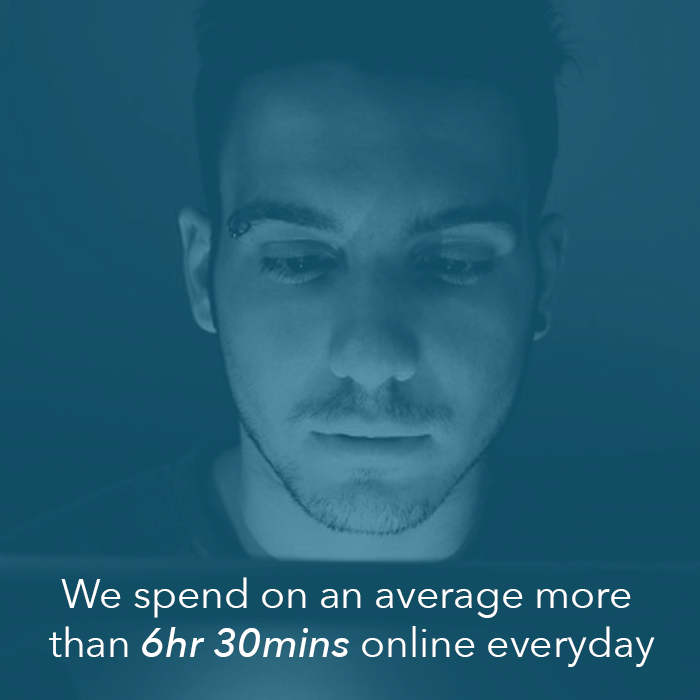
This is having a significant impact on our minds. We are now more distracted than ever, and we don’t need statistics to support this! Just watch yourself online and notice how quickly you move from one video to another, from one post to another.
In the last decade, there has been a rise in social media-induced depression and anxiety around the world, especially among the younger ones. In the past 10 years, there has been a 69% rise in cases of teenagers harming themselves and 189% cases of pre-teens doing the same to themselves.
A fourth of all the queries on Google are now related to pornography, which in turn is contributing to damaging relationships. Sex therapists in the UK reported that 90% of their clients felt that watching pornography hurt their relationships.
So what’s wrong with all of this you may ask?
With the advent of social media, we now have everything from around the world at our fingertips! From watching a long lost acquaintance with whom we might have completely lost touch celebrate their vacation in Hawaii to watching perfectly manicured people with perfectly manicured lives, it’s just a barrage of unrealistic images and stories! All of this creates an illusion that everyone’s lives look perfect except our own lives which eventually makes us feel depressed and sad.
Our world now has also now become a world of instant gratification. Fulfil any desire by just clicking a few buttons. Hungry? Click a button and have food delivered in a few minutes. Bored? Watch a movie on Netflix. Lonely? You know where this goes.
It is essential to realise that most things in life do not get fulfilled instantly. Your personal growth, your relationships, your understanding of life, your career growth don’t happen instantly. These take time and a world of instant gratification can make us frustrated if they don’t happen quickly. More to that, an overload of information without real experience can leave us burnt out. We need to balance our real-world experiences with the ideas, thoughts and concepts that we have been fed with.
Can we do something about it?
The answer to this is yes, but like most things in life, it’s not that straightforward. This is because corporations are spending big & hiring engagement scientists and psychologists to understand our online behaviour patterns and subconsciously hook us to their platforms. Their agenda is simple; to keep you on their platform longer so they can earn more advertisement revenue from you.
If you think all of this sounds like a conspiracy, try going to any social networking site only for a few minutes to do what you intend to. You will notice that you invariably end up spending much more time than anticipated and would most likely end up scrolling through the endless posts.
Mindfulness & Technology- A key to our digital wellbeing
Now let’s look at ways we can use technology more mindfully.
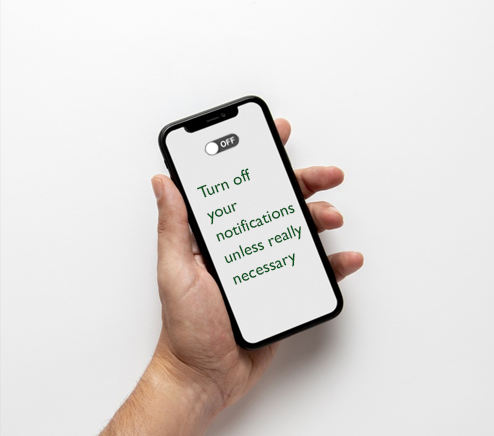
Switch off notifications
One of the most distracting things now are smartphone notifications. The sound of the notification or the red alert icon are pavlovian designs created to hook your subconscious and take you off on a tangent. So try to switch them off unless really necessary and take control of when to check your email or WhatsApp forward.
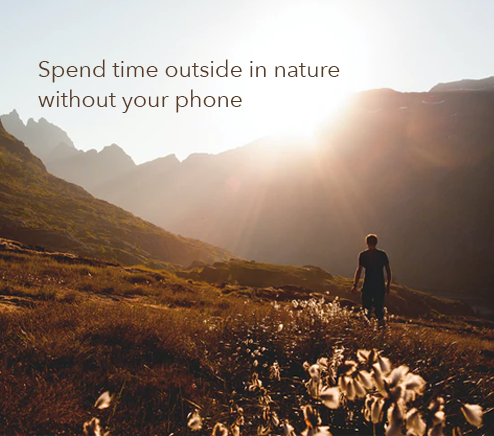
Spend time in nature without your phone
When you’re going outside for a walk or a run, avoid being connected. There’s also substantial evidence now that the electromagnetic waves produced and received by phone are harmful to your body. Plan digital detox weekends where you avoid using any technology or gadgets for the whole day or at best for the whole weekend. Don’t fret about missing out on important calls- remember that mobile phones are only a recent invention and a couple of decades ago, people lived comfortably without the need to be informed at all times.
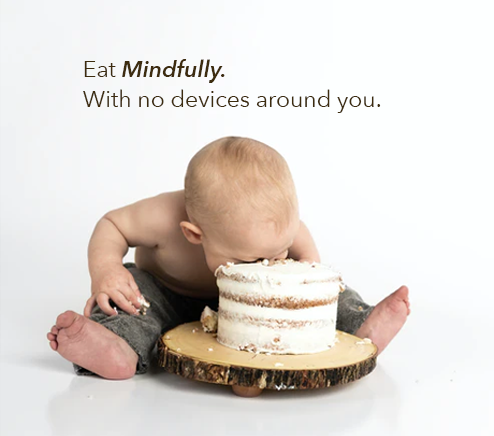
Eat mindfully
When you’re at the table, make sure that you’re completely present and that you’re eating and tasting food mindfully. It’s also a time for you to have real conversations with your family and real people around you.
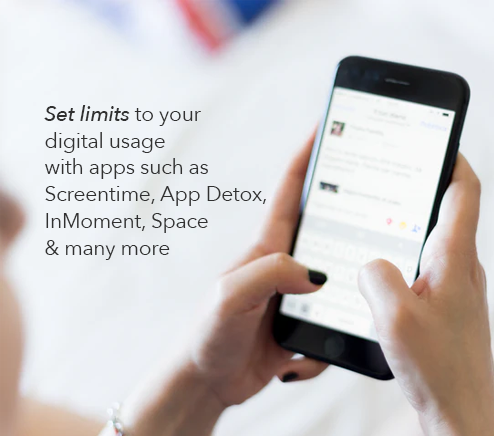
Set time limits to your digital usage
Now, most companies that create mobile phones are realizing the addictive nature of their creation which is why devices now come with default applications for setting usage limits. If you don’t have inbuilt applications to set time limits, try using apps like Screentime, App Detox, InMoment, Space etc.
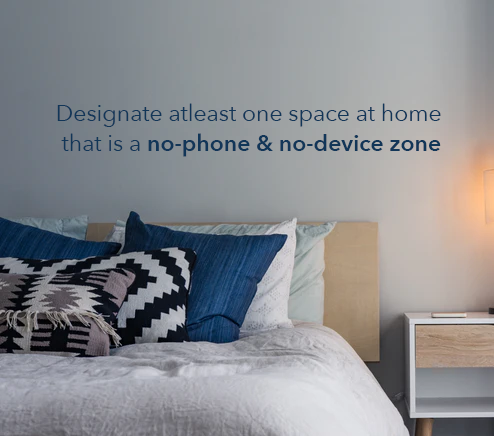
Designate a space at home as a no network room
Designate a space at home where you avoid the use of any gadgets & keep it only for your own self, without signals going in and out. It should be your space to connect with yourself. Even if it’s just a small conversation, don’t bring the phone along with you to this space.
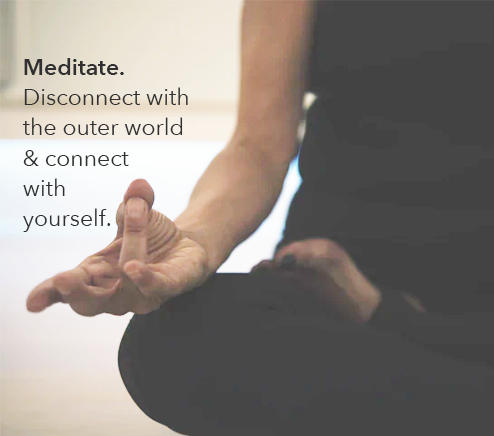
And last but not least, meditate regularly
Meditation is probably more important in these times than it has ever been. We have transformed into super-cerebral beings. Our minds are in a constant rush chasing the next big dopamine rush. Meditate just to observe how the mind moves from one thought to another and try to let them pass without involving yourself with them.

